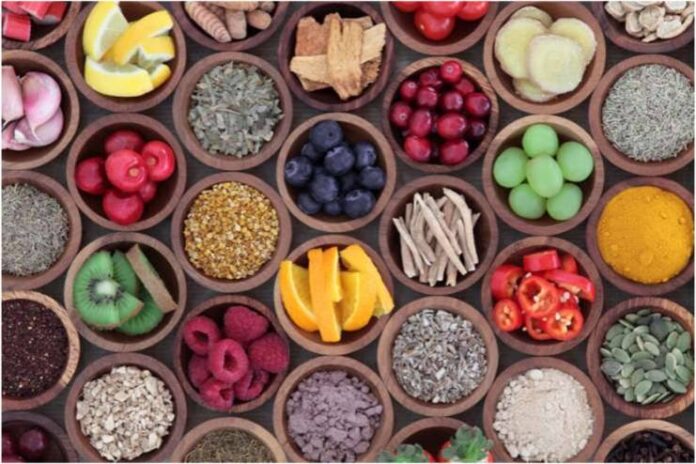Affiliate Disclaimer
Some links in this article are affiliate links. We may earn a small commission if you make a purchase through these links, at no extra cost to you. We only recommend products we find useful to our readersOur digestive health has a significant impact on our overall well-being, which includes not only our physical health but also the mental and our emotional well-being. The efficient absorption of nutrients, appropriate waste removal, and preservation of a healthy gut flora depend on a healthy digestive system. As more people become aware of the connection between digestive wellness and overall health, more people are using natural home treatments to support digestive health.
This holistic approach gives people the confidence to pursue better, more balanced lifestyles. This article discusses the importance of digestive health and demonstrates how natural treatments can be used as easily accessible instruments to support a robust and functional digestive system.
The Importance of Digestive Health
The foundation of general well-being is digestive health, which includes several essential elements necessary for our bodies to operate at their best. Fundamentally, good digestive health is about assuring effective food digestion and preserving a delicate balance of gut bacteria. The complex collection of bacteria known as the gut flora inhabits our digestive tract and is crucial for immune function, vitamin synthesis, and the digestion of specific compounds.
Another important element is efficient digestion, which guarantees that nutrients from our food are efficiently metabolized and absorbed into the bloodstream. The body needs these building blocks for energy production, cell repair, and general vitality; this procedure is essential to supply them. Because the stomach and brain are closely linked through the gut-brain axis, having a healthy digestive system affects mental, emotional, and physical health.

People can build a strong foundation for their general health by being aware of and emphasizing gut health. In addition to preventing digestive problems, a healthy digestive tract improves immunity, energy, and cognitive performance. We learn about the importance of intestinal health and how taking care of this part of our health can result in a more balanced and energetic existence.
1. Probiotics: Your Gut’s Best Friend
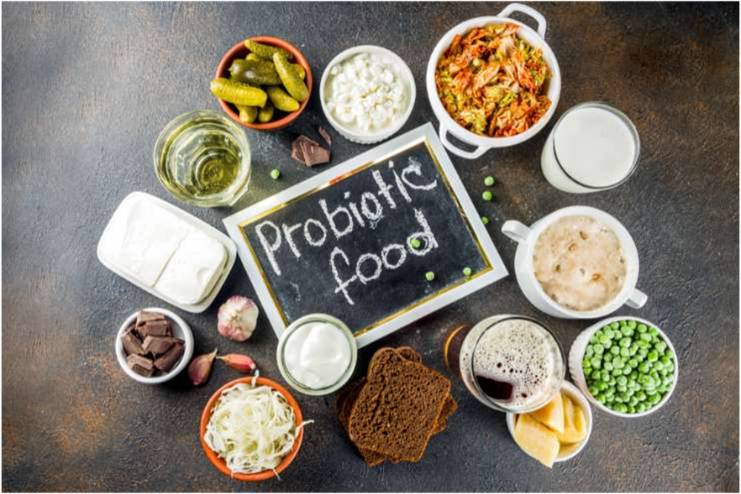
Probiotics: The Best Friend for Your Gut
Probiotics stand out as heroes in the fight for digestive health because they are reliable partners in preserving a healthy, balanced gut microbiota. These helpful microbes, primarily made up of different types of yeast and bacteria, are essential to maintaining the delicate balance of the digestive system. Probiotics support the immune system, help with some substance digestion, and drive out harmful bacteria to promote a healthy gut environment.
Natural Probiotic Sources:
Taking advantage of the benefits of probiotics doesn’t mean grabbing supplements—nature offers a variety of delicious options that are simple to include in one’s diet. One popular item high in probiotics is yogurt, which has live cultures that help strengthen the gut flora. Another powerful source is kefir, a fermented milk beverage that contains a wide variety of probiotic microorganisms. Accept the world of fermented foods, which include miso, kimchi, and sauerkraut. These foods not only tempt the palate but also provide an abundance of probiotics for the digestive system.
Including these organic probiotic sources in your diet is a tasty and preventative way to support gut health.
2. Fiber-Rich Foods: Nourishment for Your Gut
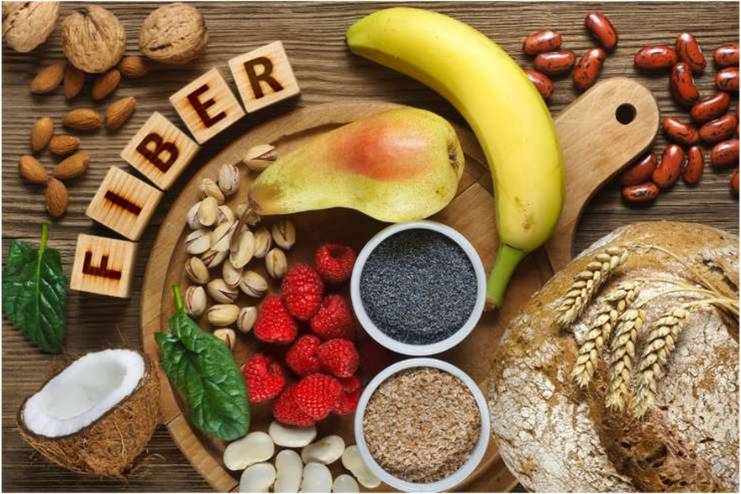
Foods High in Fiber: Healing for Your Gut
Regarding digestive health, dietary fiber is an unsung hero that provides many advantages beyond keeping the digestive tract regular. This indigestible plant material is essential for maintaining healthy gut flora and general well-being.
The advantages of dietary fiber
Adding fiber to the diet has several benefits, chief among them being the maintenance of regularity in your digestive system. As a natural bulking agent, fiber gives stools more volume and helps them transit more quickly through the digestive system. It promotes a healthy balance of intestinal bacteria and aids in preventing constipation, all of which lead to better overall digestive health.
Entire List of Foods High in Fiber:
Discover the advantages of fiber by consuming a wide variety of meals high in nutrients. Dietary fiber is abundant in fruits (apples, berries, and pears) and vegetables (broccoli, carrots, and spinach). Brown rice, quinoa, and oats are examples of whole grains that provide other ways to increase your fiber consumption. Legumes, nuts, and seeds enhance fiber-rich options for a well-rounded, gut-nourishing diet.
Making foods high in fiber a mainstay of your diet supports regularity in the digestive system and helps with weight management and heart health.
3. Hydration and Digestion

Staying well hydrated is essential to preserving the best possible digestive function. Water is necessary for digestion of food and the absorption of nutrients in the digestive system.
Constipation can result from insufficient water intake since the digestive system needs water to soften stool and make it easier to travel through the intestines. Staying hydrated by preventing bloating and indigestion contributes to a more comfortable and practical digestive process.
Drinking enough water throughout the day is advisable to facilitate healthy digestion. While general recommendations suggest consuming at least eight glasses, or 64 ounces, water each day, individual requirements may vary based on the age, weight, and level of exercise. It’s essential to pay attention to your body’s cues and drink more water when you’re exercising more or when the weather is hot.
Herbal teas, in addition to simple water, can be helpful to partners in supporting digestive health. Some herbal teas can ease discomfort and calm the digestive system. Tea made from chamomile is well known for its ability to soothe the stomach and ease indigestion. Another great option is peppermint tea, which is well-known for easing gastrointestinal tract muscle tension and alleviating irritable bowel syndrome symptoms (IBS). Incorporating these herbal teas into your regimen may support a more balanced digestive system and enhance your efforts to stay hydrated.
4. Digestive Enzymes: Unlocking Nutrient Absorption
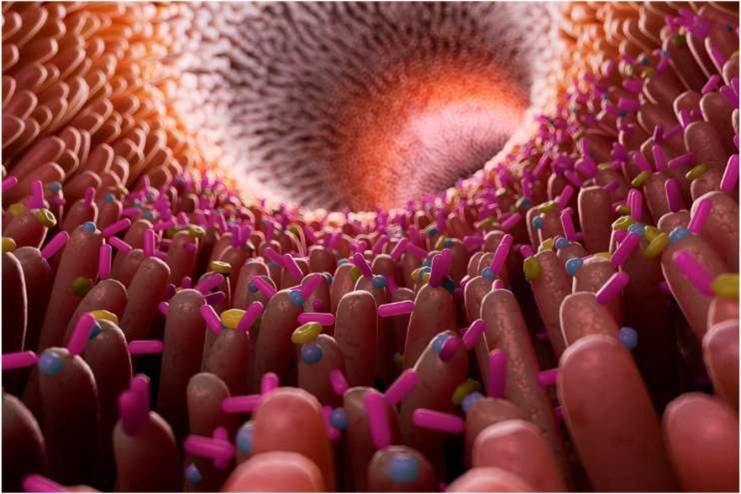
Digestive enzymes are essential to enable the body to absorb nutrients and ensure that it can obtain the necessary components from the food we eat. The digestive system produces these enzymes, simplifying complicated substances into forms the body can absorb more readily. Nutrient shortages could result from insufficient utilization of the nutrients included in food if there are inadequate digestive enzymes.
Enzymes such as lipase, protease, and amylase collaborate to break down carbs, proteins, and lipids throughout the digestive process. For example, amylase converts starches into sugars, whereas protease helps break down the proteins into amino acids. In contrast, lipase is essential for the hydrolysis of fats into glycerol and fatty acids. The body needs this breakdown process to absorb and use these nutrients for development, energy, and general health.
Bromelain, an enzyme with proteolytic qualities found in pineapples, aids in the breakdown of proteins. Papain, an enzyme well-known for its capacity to digest proteins and promote a healthy digestive tract, is also present in papayas.
5. Herbal Allies for Digestive Harmony

Explore the health benefits of herbal companions that support digestive balance and provide mild yet efficient relief for typical digestive aches and pains. Famous for its calming qualities, peppermint has been loved for its ability to soothe the gastrointestinal system for generations. Its menthol content relieves indigestion and bloating symptoms by relaxing the muscles in the digestive system.
Another powerful plant that is popular for its digestive properties is ginger. It has anti-inflammatory ingredients, including gingerol, which helps lessen stomach discomfort. Ginger is very useful for relieving nausea and supporting healthy digestion in general.
Not only may these herbs be added to food, but herbal teas are a delicious method to aid digestion. The leaves of peppermint plant are used to make peppermint tea, a soothing option for reducing bloating and easing digestive discomfort. Made with fresh ginger root, ginger tea not only provides warmth but also aids in promoting healthy digestion and reducing motion sickness.
Another mild way to encourage digestive harmony is to drink chamomile tea. Chamomile’s anti-inflammatory and antispasmodic qualities help reduce gastrointestinal discomfort and induce relaxation.
6. Mindful Eating Practices
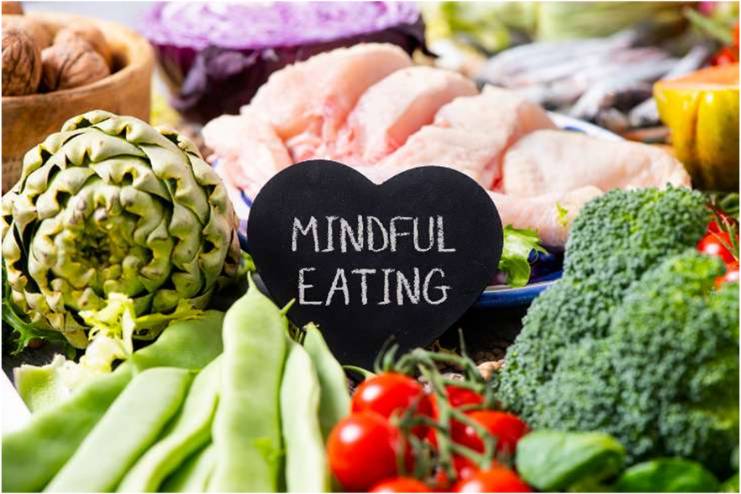
Eating with awareness, a transformative practice beyond nutrition, significantly impacts digestion and general health. People can create a deep bond between their bodies and food by increasing awareness of the eating experience. In addition to improving meal satisfaction, this mindful eating style has a beneficial effect on digestion.
In mindful eating, we enjoy every mouthful of our food and take in its scents, textures, and flavors. This intentional attention to the here and now triggers the body to relax, facilitating the best possible digestion. Eat mindfully by chewing food slowly and thoroughly, breaking down food into more digestible components and permitting salivary digestive enzymes to start digestion.
Choosing foods that nourish the body and the mind, paying attention to the body’s signals, and developing a conscious awareness of hunger and fullness cues are all part of encouraging readers to adopt mindful eating practices. People can create a mindful eating environment by using slower chewing, setting down utensils between bites, and reducing distractions during meals.
7. Prebiotics: Feeding Your Gut’s Good Bacteria
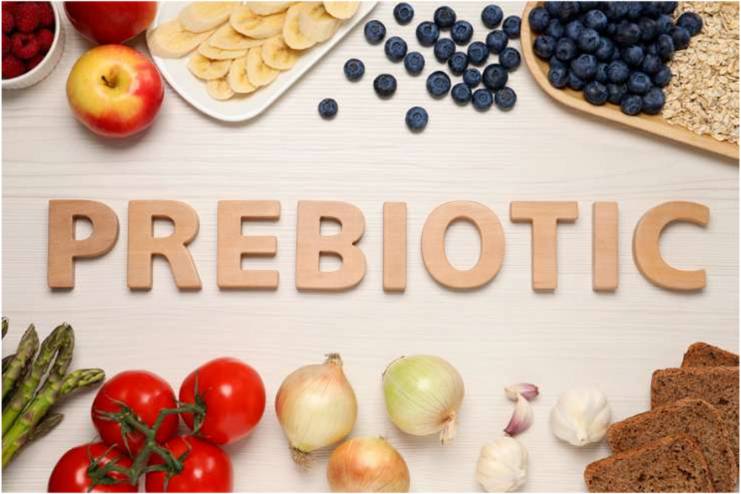
Discover the realm of gut health by learning about prebiotics, the unsung heroes that promote the development and activity of good gut bacteria. Probiotics are the live bacteria in the digestive tract, and prebiotics are non-digestible carbohydrates nourishing them. Prebiotics play a significant role in supporting a healthy, balanced gut microbiota by encouraging the growth of these beneficial bacteria.
Prebiotics’ job is to go into the colon undigested so that probiotics can feast on them. Short-chain fatty acids are produced during this fermentation process, which gives the colon’s lining cells energy and fosters the growth of beneficial bacteria. By feeding these probiotics, prebiotics help maintain a healthy gut balance, improve nutritional absorption, and build a robust immune system.
Add foods high in these fibers to your diet to maximize the benefits of prebiotics. Because of its prebiotic components, garlic enhances the flavor of food and gives your gut bacteria vital nourishment. Another common ingredient in food preparation is onions, which provide prebiotics that support a healthy microbial ecology. Prebiotic fibers are included in common fruits like bananas, which makes them a tasty and beneficial addition to your diet for your gut.
8. Lifestyle Habits for Digestive Wellness

A comprehensive lifestyle that promotes healthy digestive function is necessary to achieve digestive wellness and make informed dietary decisions. Frequent exercise promotes the natural passage of food through digestive tract and lowers risk of conditions like constipation, making it a cornerstone of digestive health. To maintain the health of your digestive system, try to get in at least 30 minutes of moderate exercise most days of the week.
Since stress can affect gut function, effective stress management is essential for digestive wellness. Create a more peaceful environment for digestion by incorporating stress-relieving activities into routine, such as the yoga, meditation, or deep breathing exercises. Stress management has a favorable impact on your digestive system and mental health.
Getting enough sleep is the essential for maintaining overall health, which includes digestive health. Sleep deprivation has the potential to upset the delicate hormonal balance that regulates appetite and satiety, which can lead to overeating and digestive discomfort. Try to get between seven and nine hours of sound sleep every night to give your body and digestive system time to recover.
Being adequately hydrated is essential for digestive health, so consume plenty of water throughout the day. Water facilitates the entire digestive process and softens stool, making passing easier. You may foster overall well-being and digestive health by implementing these lifestyle practices into your daily routine and creating a supportive environment for your digestive system.
Conclusion
Maintaining digestive health requires a multifaceted strategy incorporating natural therapies and attentive lifestyle choices. We discussed the role of prebiotics, digestive enzymes, herbal allies, water, and lifestyle choices in supporting a healthy digestive tract. Consider implementing these routines into your everyday life to support long-term wellness. Drink plenty of water, enjoy the health benefits of herbal teas, and eat foods high in prebiotics, such as bananas and garlic. Prioritize getting enough sleep, exercising frequently, controlling stress, and adopting mindful eating habits.
Other Recommended Articles
References
- https://www.ncbi.nlm.nih.gov/pmc/articles/PMC4425030/
- https://www.health.harvard.edu/topics/digestive-health
- https://www.bmj.com/content/361/bmj.k2179
- https://www.ncbi.nlm.nih.gov/pmc/articles/PMC3539293/
- https://pubmed.ncbi.nlm.nih.gov/31434172/
- https://my.clevelandclinic.org/health/treatments/14598-probiotics
- https://www.bmj.com/content/361/bmj.k2179
- https://www.ahaphysicianforum.org/health/role-of-probiotics-in-gut-health/
- https://www.mayoclinic.org/healthy-lifestyle/nutrition-and-healthy-eating/in-depth/fiber/art-20043983
- https://www.medicalnewstoday.com/articles/146935
- https://www.ncbi.nlm.nih.gov/pmc/articles/PMC7589116/
- https://pubmed.ncbi.nlm.nih.gov/19335713/
- https://www.mayoclinic.org/healthy-lifestyle/nutrition-and-healthy-eating/expert-answers/digestion/faq-20058348
- https://www.everydayhealth.com/water-health/water-body-health.aspx
- https://www.healthline.com/health/food-nutrition/why-is-water-important
- https://www.maine.gov/mdot/challengeme/topics/2020/06Jun/
- https://www.wku.edu/news/articles/index.php?view=article&articleid=2330
- https://www.verywellhealth.com/what-are-digestive-enzymes-1945036
- https://www.webmd.com/diet/what-are-digestive-enzymes
- https://www.ncbi.nlm.nih.gov/pmc/articles/PMC4923703/
- https://www.webmd.com/diet/what-are-digestive-enzymes
- https://www.healthline.com/health/exocrine-pancreatic-insufficiency/the-role-of-digestive-enzymes-in-gi-disorders
- https://www.heinens.com/stories/the-best-herbal-teas-for-digestive-health/
- https://www.mountsinai.org/health-library/herb/ginger
- https://www.ncbi.nlm.nih.gov/pmc/articles/PMC6266883/
- https://www.healthline.com/nutrition/tea-for-digestion
- https://www.pritikin.com/healthy-mind/mindful-eating-for-improved-digestion-and-nutrient-absorption.html
- https://www.ncbi.nlm.nih.gov/pmc/articles/PMC7219460/
- https://www.rupahealth.com/post/the-science-behind-mindful-eating-how-it-impacts-digestion-and-overall-health
- https://www.takingcharge.csh.umn.edu/mindfulness-helps-us-digest-and-enjoy-our-food
- https://www.lifespan.org/lifespan-living/importance-prebiotics
- https://www.ncbi.nlm.nih.gov/pmc/articles/PMC3539293/
- https://www.nytimes.com/2022/10/28/well/eat/prebiotic-supplements-gut-health.html
- https://www.gastroconsa.com/12-ways-to-improve-your-digestive-health/
- https://www.unilab.com.ph/articles/10-quick-tips-for-healthy-digestion
- https://www.intercoastalmedical.com/2018/09/07/eating-for-a-healthy-digestive-system/














